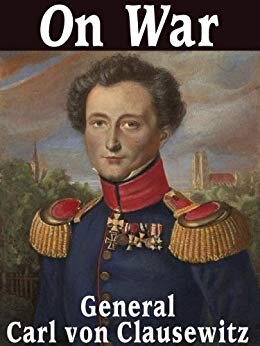Everything is very simple in war, but the simplest thing is difficult. These difficulties accumulate and produce friction. The friction arises because every action in a war depends on each individual involved. This theory of friction was created by Carl von Clausewitz.
He argued that in a war, decisions are made with three-fourths of the needed information hidden in a fog of uncertainty. As a result, the best plan of action may fail due a mental lapse, a mistake, or a misunderstanding of a single individual.
To overcome friction, Clausewitz argued that a general needs three things. He needs experience developed from a diverse education studying socio-political and economic matters as well as regular military topics. He needs practice, meaning combat experience. Third, he needs an iron will, meaning the moral character to stick with a decision until it is clear that the circumstances require a change in plan.
A general who has these three qualities will create a plan of action that reduces friction by thinking about probabilities, possibilities, and unforeseeable actions. Well drilled soldiers with clear instructions will probably be successful. But when there are mistakes or misunderstandings, contingency planning will allow the general to adapt to the changed circumstances.
Clausewitz’ theory of friction was based on his experiences in the Napoleonic wars. He entered military service in 1792 and received his commission a year later at the age of 13. By the age of 14, he was in combat. This was typical for the son of a Prussian aristocrat of the day.
In 1803, Clausewitz was assigned to the War Academy at Berlin where he became a protégé of Gerhard von Scharnhorst. Scharnhorst led a group of reformers who advocated political, economic and military reforms intended to pull Prussia out of its medieval past so that it could compete with France, England and Russia, the great powers of the day.
The reformers also argued that Prussia’s people and customs were unique. In essence, they formulated a national identity for the Prussian people to set them apart from their neighbors. This new identity was critical to the revival of Prussia as a country after Napoleon was defeated. However, it is also an early version of 19th century nationalism that evolved into the racial and cultural elitism that is still around today.
Soon after Prussia was defeated by Napoleon in 1807, Clausewitz resigned his commission in the Prussian army and moved to Russia to serve Tsar Alexander I (grandson of Catherine the Great.) Clausewitz helped design the Russian strategy of constantly retreating as Napoleon invaded in 1812. Napoleon ground to a halt at Moscow and was forced to retreat, losing most of his army before he returned to Poland.
After Napoleon’s defeat at Waterloo in 1815, Clausewitz returned to Prussia. In 1818, he became director of the War Academy (Prussia’s version of West Point). The role was largely ceremonial and he devoted his time to writing On War.
Clausewitz’s theory of friction can be easily adapted to non-military endeavors. In fact, we live with it every day. Every game plan for a sports team and every business plan dreamed up by a company’s CEO will have friction because success depends on each team member and company employee. An unforced error, a misunderstanding, or a poor performance by one individual can cause the plan to fail.
To reduce the effects of friction, we can do what any general would do. Develop contingency plans to cover the “what if” moments arising from friction. Then stick with the original plan until circumstances make it clear that the plan must be tweaked.
Want to receive this blog straight to your inbox? Sign up for my mailing list.
You can also follow me at HerSavvy.com. My column appears the 3rd Tuesday of each month.



